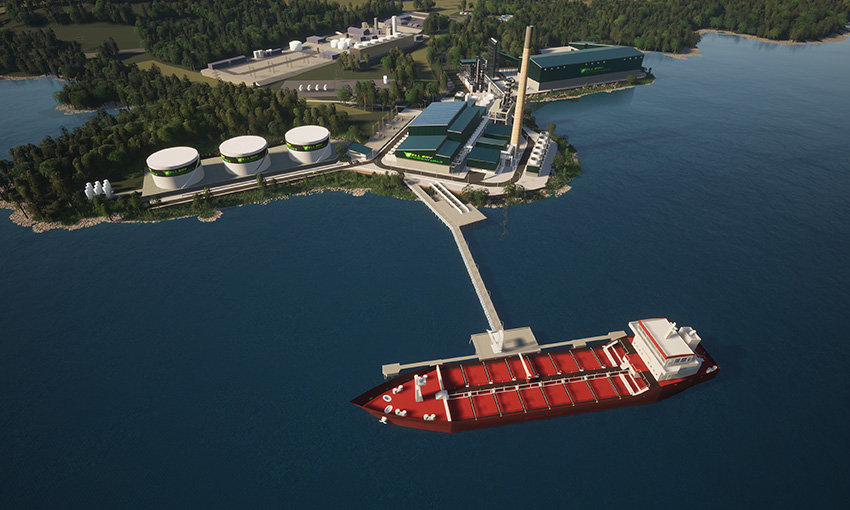A COLOSSAL green hydrogen and methanol plant in Tasmania has taken a step forward, as Hydro Tasmania and Bell Bay Powerfuels have signed a term sheet for the sale of the decommissioned Bell Bay Power Station.
The $1.2-billion Bell Bay Powerfuels Project is currently under development by its Australian parent company Abel Energy, with financial and project support from Iberdrola Australia.
Abel Energy aims to develop projects that use green hydrogen primarily for the production of green methanol. And Iberdrola Australia invests in renewable energy assets.
The selection of the site at Bell Bay accelerates project development, with front end engineering and design due to start in a few months’ time, according to a statement from Abel Energy.
Commercial operation is scheduled to commence in 2027. As proposed, the facility produce 300,000 tonnes per year of output.
The project will also require the development of new power generation assets, to provide sufficient renewable power for the proposed 240-megawatt electrolyser unit.
According to Abel Energy, the unit will generate the green hydrogen required for the onsite production of green methanol.
Hydro Tasmania’s Bell Bay Power Station was originally oil-fired when commissioned in 1971. It had its own deepwater berth to receive the incoming ocean-going oil tankers.
The berth is still in place and will be used by Bell Bay Powerfuels for the export of green methanol. The power station will otherwise be demolished although there is a desire to retain and repurpose some of the other existing structures where possible.
Significant progress has already been made across other project components such as supply of biomass from certified plantations, sustainable water sourcing, engineering capability and green methanol offtake arrangements.
Abel Energy CEO and co-founder Michael van Baarle said the announcement is the start of a “very unique” period for Tasmanian renewable energy.
“We are on the cusp of being a global leader in green methanol production, the future fuel of world shipping,” Mr Van Baarle said.
“It’s a great win for all Tasmanians particularly the Tamar Valley communities of George Town and Launceston.”
Iberdrola Australia CEO Ross Rolfe said his company’s support for the Bell Bay Powerfuels green methanol project is part of its broad commitment to helping deliver decarbonisation solutions for commercial and industrial customers in historically hard-to-abate sectors.
“In addition to our partnership with Bell Bay Powerfuels, Iberdrola is providing technical and commercial support for the project, enabling the development to benefit from our local market expertise and global capabilities in this emerging technology,” he said.
And the Tasmanian government welcomed the proposal to redevelop the Bell Bay Power Station site.
State minister for energy and renewables Guy Barnett said green methanol can be used for export and to transition manufacturing, heavy transport end energy intensive industries to renewables.
“This is an exciting opportunity because it is a step towards the creation of a new $1.2-billion clean energy production facility, but it also provides an innovative solution to re-develop the mothballed oil-fired Bell Bay Power Station that was built in 1971,” Mr Barnett said.
“With our world-class wind resource, Tasmania is an ideal location to produce cost-competitive renewable methanol/hydrogen on a large-scale to meet this emerging export and domestic demand and become a global leader in renewable energy supply.”
Recently, several companies signed a memorandum of understanding to explore the feasibility of establishing a green methanol bunkering hub at the Port of Melbourne. The signatories plan to look at a project that involves transporting green methanol from production sites in Victoria and Tasmania, including Bell Bay.

